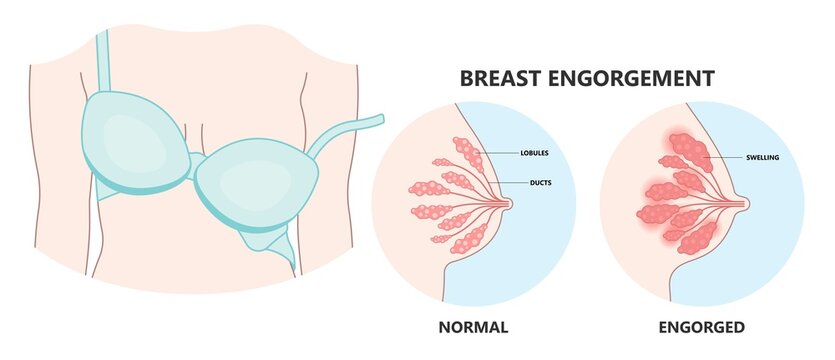
Breast Engorgement: Managing a Common Issue during Breastfeeding
Introduction:
Breast engorgement is a common problem that many breastfeeding mothers experience. It occurs when the breasts become overly full with milk, leading to discomfort. Whether it happens soon after childbirth or later on, breast engorgement can be alleviated by following some simple steps.
What is breast engorgement?
Breast engorgement is when the breasts become swollen, hard, and tender due to excessive milk supply. It is more common among first-time mothers but can occur in any breastfeeding woman.
What are the symptoms of breast engorgement?
The common symptoms of breast engorgement include:
– Swollen, hard breasts
– Tender or painful breasts
– Warmth or redness
– Feeling of fullness
– Difficulty breastfeeding
What causes breast engorgement?
Breast engorgement can be caused by various factors, such as:
– Infrequent breastfeeding: Not feeding your baby often enough can lead to engorgement.
– Ineffective milk drainage: If your baby is not effectively draining the breasts during breastfeeding, it can contribute to engorgement.
– High milk supply: Some mothers naturally produce more milk than their baby needs, leading to engorgement.
– Delayed breastfeeding initiation: Waiting too long to start breastfeeding after giving birth can increase the risk of engorgement.
How to manage breast engorgement
To alleviate breast engorgement, consider these strategies:
- Frequent breastfeeding: Breastfeed your baby more frequently to help empty the breasts and reduce milk production.
- Warm compresses: Applying warm compresses to the breasts can ease pain and reduce swelling.
- Cool compresses: Alternating with cool compresses can also provide relief by reducing pain and swelling.
- Gentle massage: Massaging your breasts gently can help alleviate pain and reduce swelling.
- Pumping: If necessary, you can use a breast pump to express milk and relieve breast pressure.
- Over-the-counter pain medication: Taking over-the-counter pain medication like ibuprofen or acetaminophen can help manage discomfort.
When to seek medical help
You should consult a doctor if:
– The pain is severe
– The swelling is severe
– You have a fever
– You have any other concerns
Conclusion
Breast engorgement is a common issue faced by breastfeeding mothers. Although it can cause discomfort, there are effective ways to manage it. By breastfeeding frequently, using warm or cool compresses, gentle massage, pumping if needed, and considering over-the-counter pain medication, you can find relief. If you experience severe pain, swelling, fever, or have any concerns, consult a doctor for further guidance.


